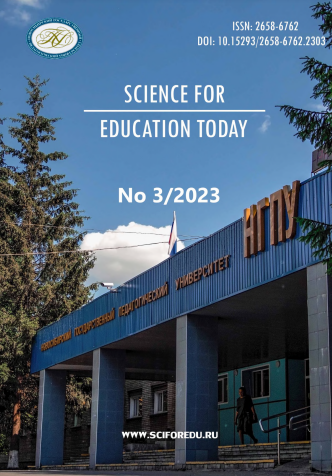Особенности современной модели иноязычного образования: принципы экосистемного подхода
Modern model of foreign language education: Principles of ecosystem approach
Author(s): Elena A. MakarovaSubject(s): Foreign languages learning, Educational Psychology, Evaluation research, Sociology of Culture, Inclusive Education / Inclusion, Sociology of Education, Pedagogy
Published by: Новосибирский государственный педагогический университет
Keywords: Educational ecosystem; Ecosystem approach; Interactive language activity; Educational model; Mobile technologies; Pedagogical competence;
Summary/Abstract: Introduction. The paper investigates peculiar features of the ecosystem approach to teaching foreign languages at university. The aim of the study is to summarize the ideas about the ecosystem in modern educational conceptions and language research, in the practice of implementing models of effective foreign language teaching. Materials and Methods. The author applies a systematic approach to the analysis of the concept ‘ecosystem’ being under consideration in modern educational research investigations, a scientific approach to substantiating the ecological views on investigating language skills, and an empirical approach to describing conditions of effective foreign language learning environment. Results. Summarizing the data obtained, the author has formulated the main principles of the ecosystem approach to foreign language teaching at university. Firstly, the educational ecosystem is centered around the learning situation with actively interacting students and their teacher. Secondly, the learning situation is gradually modeled by the teacher for each type of speech activity, taking into account the language proficiency and experience of students. Thirdly, teacher’s didactic and organizational competence contributes to interactions among students with indirect teacher’s intervention, as well as to learner autonomy and development of students outside the classroom. Fourthly, learning materials, corresponding to abilities and interests of students and mobile devices help students construct and navigate informative educational language environment. Conclusions. The article concludes that principles of ecosystem approach should be the basis of creating a new educational environment and designing a new educational model of teaching foreign languages at university.
Journal: Science for Education Today
- Issue Year: 13/2023
- Issue No: 3
- Page Range: 163-177
- Page Count: 15
- Language: Russian

